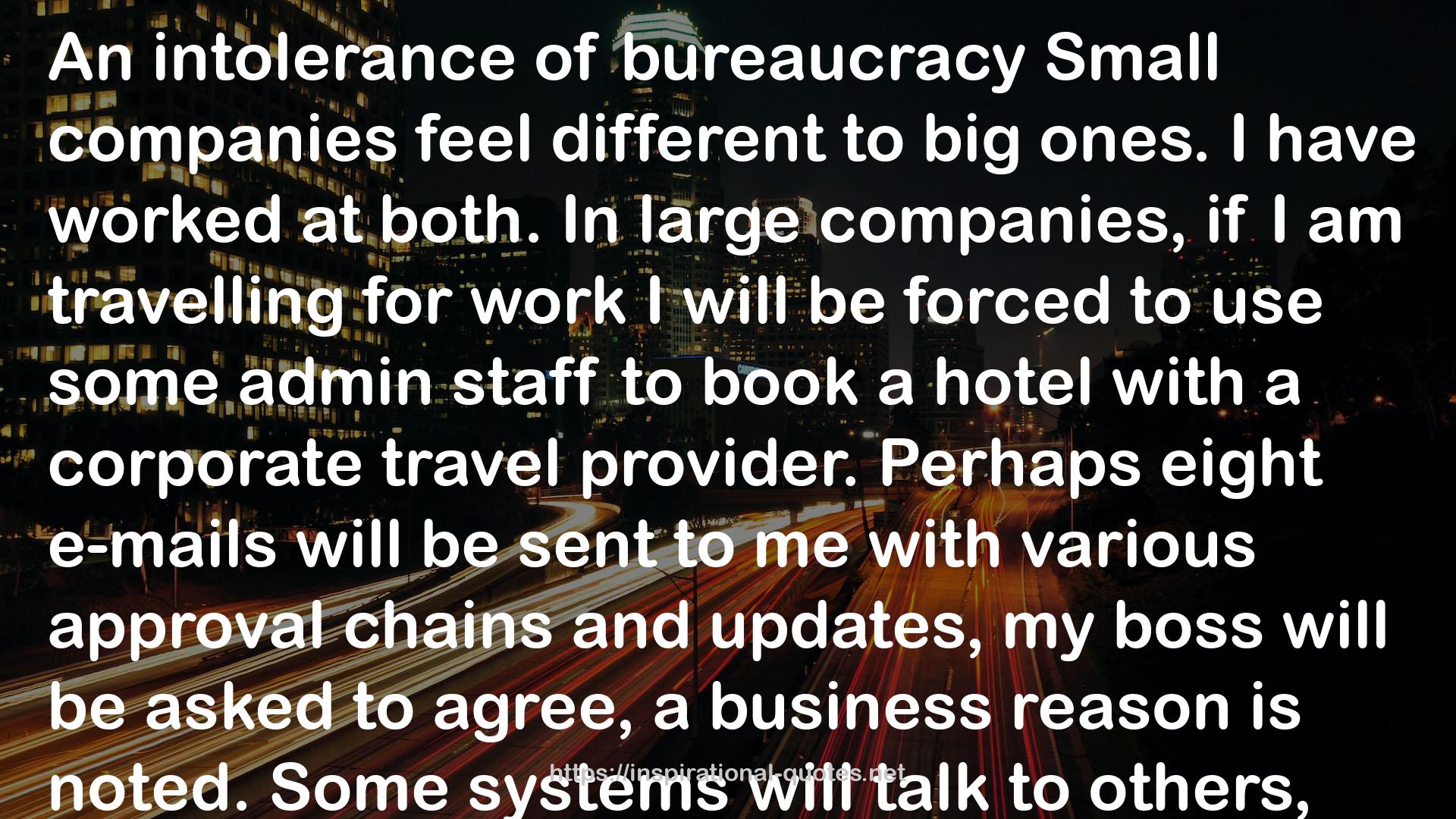" An intolerance of bureaucracy Small companies feel different to big ones. I have worked at both. In large companies, if I am travelling for work I will be forced to use some admin staff to book a hotel with a corporate travel provider. Perhaps eight e-mails will be sent to me with various approval chains and updates, my boss will be asked to agree, a business reason is noted. Some systems will talk to others, and my assistant will orchestrate the whole thing. It will take perhaps 10 minutes of my time, 30 minutes of my assistant’s, and likely an hour of other people’s in back offices. All this to book a hotel stay for $200 that on the Hotel Tonight app I could book in around three seconds and for $100 cheaper. Why is it I can call an hour-long meeting with 20 people, costing perhaps $2,500 of time and nobody cares, but I need to ensure I use approved agents to get a hotel room? Every company, large and small, needs to reject bureaucracy and busy work. We worry a lot about seniority and protocol, but often it is an excuse. I love a memo sent out by Elon Musk, in which he says: ‘Anyone at Tesla can and should e-mail/talk to anyone else according to what they think is the fastest way to solve a problem for the benefit of the whole company. You can talk to your manager’s manager without his permission, you can talk directly to a VP in another department, you can talk to me.’ He goes on to say, while realizing the challenge and opportunity ahead and what they have against them, ‘We obviously cannot compete with the big car companies in size, so we must do so with intelligence and agility’ (Bariso, 2017). Get better at knowing when to call and when to e-mail, when to pop over for a chat, which partner meetings to never accept. A lack of bureaucracy doesn’t mean chaos, it’s about focusing on the best way to make a difference and sometimes that means anarchically barging into a meeting to get someone to make a decision. I often think teams are too big. We’ve long heard about two pizza teams, but let’s be more flexible. Tom Peters talks about the need to recruit the very best talent and pay the world’s best compensation. Steve Jobs was widely reported to have stated that a small number of A+ people can outperform any large teams of B players (Keller and Meaney, 2017). I see a lot of time and energy spent bringing people into the loop, people being part of things to look important and not adding clear value. "
― , Digital Darwinism: Survival of the Fittest in the Age of Business Disruption
